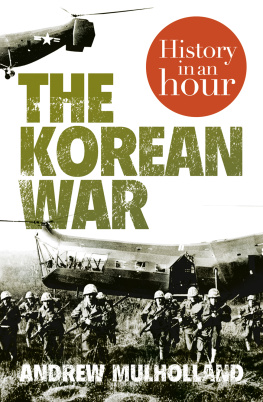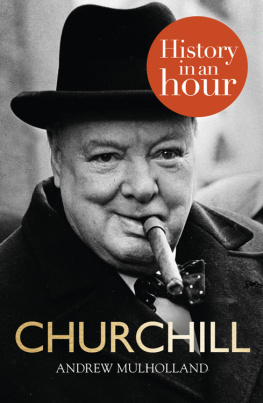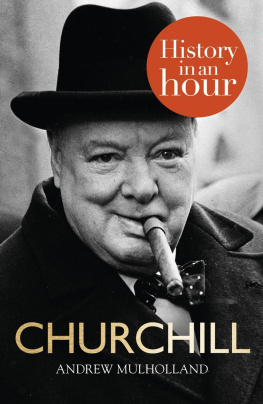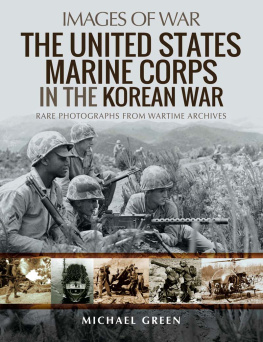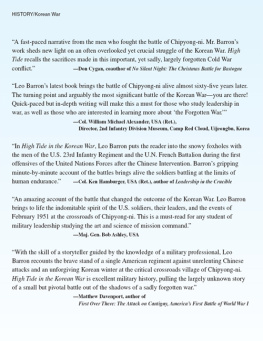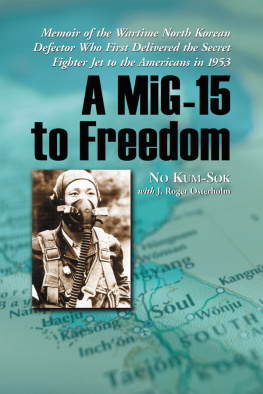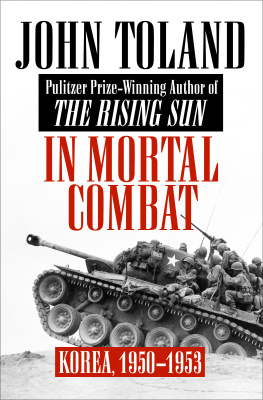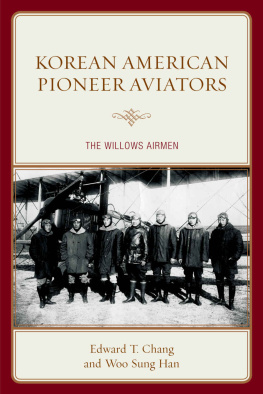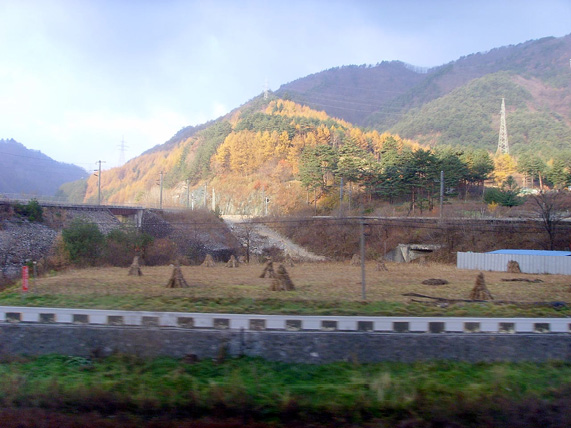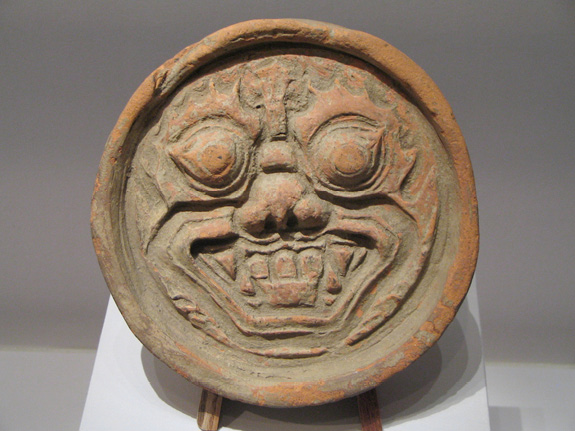It is one of the most militarized stretches of land in the world. The 38th Parallel: de facto border between the two Koreas, still technically at war some sixty years after the armistice was signed. Tense soldiers peer through binoculars across no mans land, crouched in concrete bunkers shrouded in barbed wire. Artillery batteries are permanently zeroed in, ready to fire. One side has nuclear weapons, and in 2013 declared that it was no longer bound by the 1953 agreement. Korea remains a powder keg.
The war that was fought up the length of this rugged Asian peninsula between June 1950 and July 1953 was very different from what had gone before. Since the Napoleonic period, warfare had been moving towards the extreme of total war. States would mobilize every resource at their disposal in an all-out effort to bring an enemy to his knees. The Second World War represented the epitome of this trend. Yet Korea was a messy, complicated, deeply political conflict. The simple certainties of unconditional surrender which had applied earlier were absent here. This was a more limited war generals on both sides were constrained not just by resources and the challenges of strategy, but by their political leaders, who walked a tightrope between local objectives and triggering a Third and total World War. Perhaps for these reasons, it was a war which, in many parts of the world, quickly receded from the public memory. For the West, there did not seem to be a victory to celebrate. It had been a humiliating, drawn-out and expensive affair. There are very few war films about the Korean War and it is not a period given much attention in school curricula. Even academic coverage has been light compared to the Second World War or Vietnam. In China it is still portrayed as a victory and for the people of Korea its sacrifices remain very real. In the West, however, it quickly became known as The Forgotten War.
Yet this was a pivotal event in world history. For the first time, the United Nations met naked aggression with robust military force. Seventeen member states sent troops to the defence of South Korea. Ultimately, despite the twists and turns of the conflict, the tragedies and the controversies, they won. The fact remains that the United Nations stopped an unprovoked attack on one state by another and ejected the attackers by force of arms.
Millions fought in the Korean War, at least 3 million were killed and most of them were civilians. Russian pilots flew combat missions against US aircraft the only direct acts of war ever between the two emerging super-powers. Chinese troops intervened on a massive scale. President Dwight D. Eisenhower threatened China with nuclear attack. This was no sideshow. At times, the world was on the brink.
Its repercussions are with us to this day. Not just in the continuing security scares in Korea, but in subsequent events such as the Vietnam War, the evolution of the United Nations, the emergence of post-war Japan and the development of NATO (the North Atlantic Treaty Organization), to name just a few.
This, in an hour, is the Korean War.
Geography
The Korean peninsula has been described as a natural state, geographically self-contained and with a culture entirely different to that of its neighbours. It is roughly 400 miles north to south, and 120 miles across at its narrowest. It is mostly rugged terrain, with the Taebaek mountain chain running down its centre making eastwest communications difficult. The northern border with Manchuria (part of China) is defined by two rivers, the Yalu to the west and the Tumen to the east. The Primorsky Krai region of eastern Russia shares a thirty-mile border with Koreas northeast corner as well. The important Russian port of Vladivostok is some 100 miles further to the northeast. Japan lies only 100 miles off the southeast coast. These three powerful neighbours have jockeyed for influence in the region for hundreds of years. To a degree, Korea has been caught in the middle of this rivalry.
The climate may best be described as hostile. The summers are hot and dry, the winters terribly cold. Between the two, spring rains can turn much of the landscape to mud.
In 1950, transport links were primitive, with very few roads or railways and only two major ports. These were at Pusan on the southeast tip and Inchon, serving the capital city of Seoul, midway up the west coast. They would become crucial during the war.
The Taebaek Mountains (Image by G43)
Culture
The Korean language, food and mindset are unlike those of China or Japan. Such distinctions took shape through geographical isolation. From pre-history, the peninsula was relatively self-contained. Linguistically, for instance, Korean is generally accepted to be a unique language, completely unrelated to those of its neighbours. Most scholars regard the overlap with Japanese as a later phenomenon brought about through contact. Although food is based on rice, vegetables and fish, the cooking styles are not those of northern China. The same is true of religion (with a strong Shamanistic tradition), architecture, music and dance.
Once Koreas history became dominated by neighbouring states, however, this cultural purity began to be diluted and cross-pollinated. For example, spoken Korean (and its precursor dialects) was first transposed into the Chinese Hanja script. The culture, therefore, reflects the geography and supports the idea of Korea as a natural state. For these reasons, despite a difficult history and continuing division, this is a region with a strong national identity, maintained in the face of frequent conquest.
Korean end-roof tile from 5th or 6th century (Image by pressapochista)
A History of Conflict
Korea was repeatedly invaded by China from about 200 BC. In 1219 it was the turn of the Mongols, with Genghis Khan leading the first of four large incursions by these fierce nomadic warriors. By the sixteenth century, Japan had emerged as a powerful regional player and it too sought the conquest of the peninsula. The result was devastation, widespread slaughter, economic and agricultural collapse. Little surprise, then, that by the early nineteenth century, Korea had become something of a hermit nation, anxious to minimize contact with outside cultures.
Under the Joseon dynasty this policy worked for a time, with a period of relative tranquillity and prosperity. Chinese suzerainty was formally acknowledged, but without onerous conditions. The growing imperial ambitions of Japan and Russia, however, combined with their superior technology and large armed forces, would shortly undermine this wish to be left alone.
In 1876 the Joseons signed an overtly exploitative treaty with Japan, granting her significant trading rights. Six years later, in what for a time proved a shrewd piece of diplomacy, Korea signed a treaty with the United States. Brokered by China, this deal helped to offset the influence of the Japanese, who were already basing troops in Korea. Tensions were high, as China and Japan controlled different factions within the weak Korean government. In 1885, both China and Japan agreed to withdraw all of their forces from the peninsula. Yet when in 1894 the Korean emperor requested Chinese assistance in putting down a rebellion, Japan used this as a pretext to send an expeditionary force of her own. This resulted in the First Sino-Japanese War.

